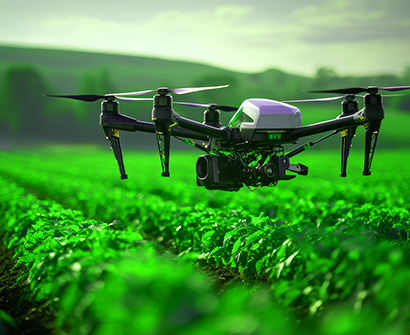Overview
As global demand for food intensifies and climate challenges deepen, agriculture must evolve rapidly to remain viable. AgriTech—technology tailored to agricultural advancement—is now at the forefront of this transformation. From precision farming to data analytics, innovation is helping farmers increase yields, conserve resources, and build more resilient systems.
How AgriTech Is Shaping the Future of Agriculture
1. Precision Agriculture – Using GPS, drones, and IoT-enabled sensors, farmers can monitor soil health, crop conditions, and irrigation needs in real time. This leads to more targeted interventions, reducing waste and improving crop quality.
2. Smart Irrigation & Water Management – Water scarcity is a major agricultural constraint. AgriTech solutions like automated drip irrigation systems and AI-based forecasting tools help optimize water usage, promoting sustainability without compromising yield.
3. Data-Driven Decision Making – Advanced analytics platforms are empowering farmers with actionable insights. By integrating weather patterns, soil data, and crop performance, these tools help in smarter planning and risk mitigation.
4. Agri-Robotics & Automation – Robotic weeders, harvesters, and autonomous tractors are reducing reliance on manual labour and improving operational efficiency. These technologies also ensure consistent performance across large-scale farming operations.
Conclusion
AgriTech is no longer a futuristic concept—it’s a necessary evolution for sustainable food production. By integrating innovation with traditional farming practices, the sector can meet growing global demands while preserving the environment. For stakeholders across the agricultural value chain, embracing AgriTech isn’t just smart—it’s essential for long-term resilience and profitability.

